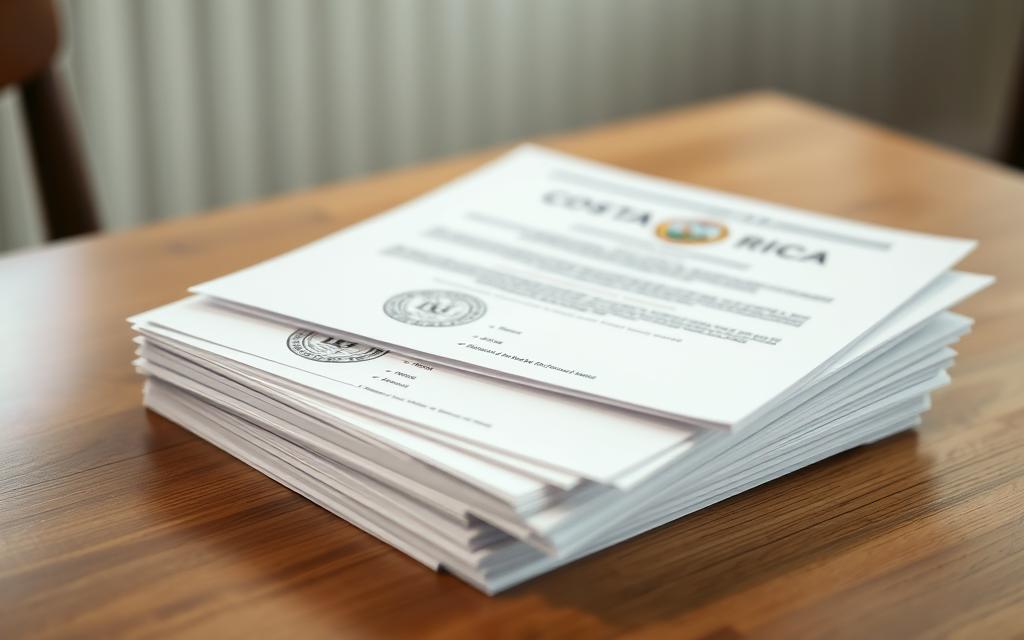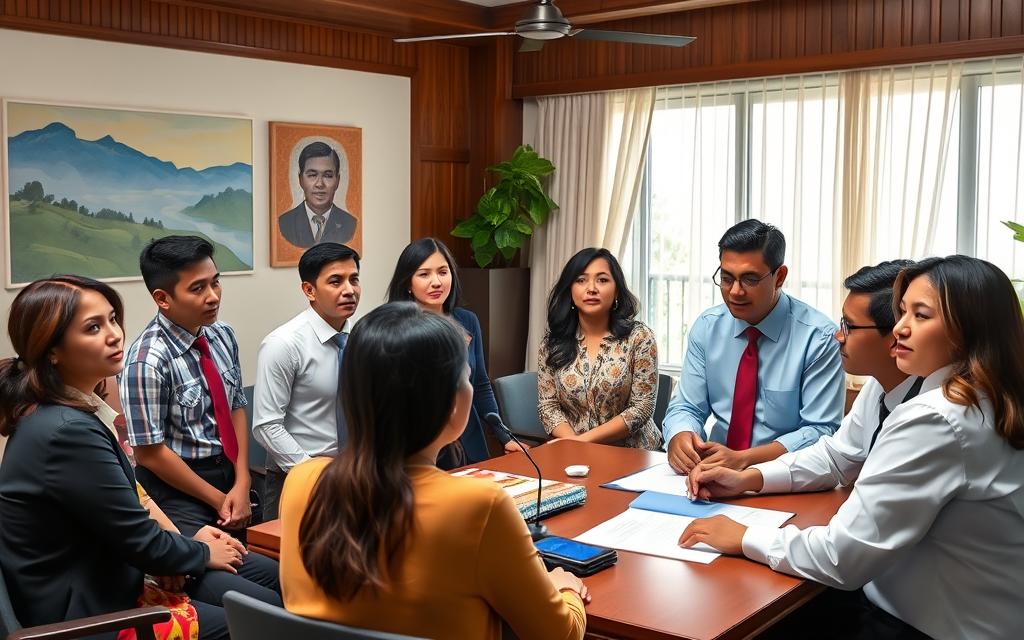Learn about private lending for luxury real estate Costa Rica. GAP Equity Loans offers flexible financing options, competitive rates, and lower fees.

Costa Rica Residency Interview Questions Answered
For individuals planning to stay in Costa Rica for extended periods, obtaining residency is a crucial step. Costa Rica Immigration Experts (CRIE), with over 20 years of experience, has helped numerous clients achieve their dream of living in the country.
Navigating the residency process can be complex, involving multiple steps from choosing the right category to preparing for the interview. Understanding the requirements and expectations is vital for a successful application. Staying in the country under a tourist visa for longer than authorized can lead to issues, including deportation and denial of re-entry.
CRIE’s expertise is invaluable in guiding applicants through the process, ensuring they are well-prepared for the interview and compliant with immigration regulations.
Understanding Costa Rica Residency Options
Costa Rica offers various pathways to residency, catering to different financial situations and life circumstances. The country has designed its residency program to be inclusive, providing options for individuals with varying financial capacities and goals.
Resident Investor Category
The Resident Investor category is ideal for those looking to invest in Costa Rica’s real estate market. To qualify, applicants must invest at least $200,000 in real estate. This category is suitable for individuals who wish to purchase property in Costa Rica, contributing to the local economy.
Resident Annuitant or “Rentista”
For those who do not wish to invest in real estate, the Resident Annuitant or “Rentista” category is an alternative. Applicants must provide a bank letter committing to provide them with $2,500 per month for two years. This income must be permanent, constant, and irrevocable, ensuring the applicant’s financial stability.
Resident Pensioner
The Resident Pensioner category is designed for retirees. To qualify, applicants must show proof of a lifetime pension of at least $1,000 per month from a government or qualified private source. This category allows retirees to enjoy their pension in Costa Rica, taking advantage of the country’s favorable climate and lifestyle.
Each of these residency options has its unique requirements and benefits. Understanding these options is crucial for selecting the most appropriate category for one’s financial situation and long-term plans in Costa Rica.
Do You Need to Apply for Costa Rican Residency?

For individuals planning to spend a significant amount of time in Costa Rica, determining the need for residency is crucial. The country’s residency options are designed to accommodate various needs, from investors to retirees.
Benefits of Residency vs. Tourist Visa
Residency provides several benefits over a tourist visa, including the right to stay in Costa Rica for extended periods without the need for frequent renewals. Residents also gain access to the Costa Rican healthcare system, can open local bank accounts, and are not required to perform “visa runs” to maintain their status.
- Legal long-term stay in Costa Rica
- Access to Costa Rican healthcare services
- Ability to open local bank accounts
- Freedom from border runs and potential associated risks
Risks of Visa Runs and Overstaying
Overstaying a tourist visa or frequently performing “visa runs” can lead to significant risks, including potential denial of re-entry, shorter authorized stays, and even deportation. Costa Rican immigration authorities are becoming increasingly stringent with tourists who appear to be living in the country without proper residency status.
To avoid these risks, it’s essential to understand the terms of your tourist visa and the implications of overstaying. Applying for residency can provide a more stable and secure status for those planning to spend significant time in Costa Rica.
Essential Documentation for Your Residency Application

Gathering the right documents is a critical step in the Costa Rica residency application process. Applicants must ensure they have all the necessary paperwork to support their application.
Required Certificates and Records
To apply for residency in Costa Rica, applicants must provide several key documents. These include a valid passport with at least six months of validity remaining, a birth certificate, and a marriage certificate if applicable.
Additionally, applicants must obtain a certificate of having a clean criminal record from their country of citizenship and any countries where they’ve lived for significant periods. This certificate must be recent, typically within six months.
- Personal identification documents, including a valid passport and birth certificates for all applicants.
- Financial documentation, which varies by residency category: investment proof for Investors, bank letters for Rentistas, or pension verification for Pensionados.
- Criminal background checks from relevant countries.
- Marriage certificates for spouses applying together, and birth certificates for dependent children.
Document Authentication Process
All documents issued outside Costa Rica must undergo authentication. For countries party to the Hague Convention, this involves Apostille certification. For non-Hague countries, consular authentication is required.
A certified translator in Costa Rica must professionally translate documents in languages other than Spanish. The authentication process can take several weeks or months, so it’s essential to begin this process well in advance of the planned application submission.
Ensuring that all documents are properly authenticated and translated is crucial for a successful residency application. Applicants should plan ahead to avoid delays in the application process.
Common Costa Rica Residency Interview Questions

Costa Rica’s residency process involves an interview that assesses an applicant’s suitability for living in the country. The interview is a critical component where immigration officials evaluate the applicant’s background, intentions, and financial stability to ensure they have legitimate reasons for seeking residency and sufficient means to support themselves.
Questions About Your Background and Intentions
During the interview, you can expect questions about your personal history, professional background, and how you learned about Costa Rica as a potential new home. Officials will inquire about your motivations for choosing Costa Rica, including what attracted you to the country and your long-term plans for living there.
Familiarity with Costa Rican culture, customs, and basic knowledge of the country’s geography and governmental system may also be topics of discussion. Immigration officials want to understand your intentions and ensure that you are prepared for life in Costa Rica.
Financial Stability Questions
Financial stability is a crucial aspect of the residency application process. You may be asked to explain your income sources, investment plans, or pension details, depending on your residency category. Questions about family members, such as whether they are included in your application or will remain in your home country, are also common.
Additionally, be prepared to discuss your plans for healthcare coverage and how you intend to address medical needs while in Costa Rica. Your housing situation, including whether you plan to rent or have purchased property and in which region you intend to settle, will also be discussed.
The interview also includes verification questions to ensure the information in your application matches your verbal responses. It is essential to be honest and consistent in your answers to avoid any complications with your application.
How to Prepare for Your Residency Interview
Costa Rica Immigration Experts (CRIE) emphasizes that preparation is key to acing your residency interview. With over 20 years of experience and thousands of successful residencies, CRIE is one of the oldest and most trusted immigration firms in Costa Rica.
Research and Knowledge Preparation
To demonstrate a genuine interest in Costa Rica beyond just seeking legal status, it’s crucial to research the country’s culture, history, and current events. This knowledge will not only boost your confidence during the interview but also show your commitment to integrating into the local community.
- Study Costa Rica’s cultural norms and values to understand the societal context.
- Familiarize yourself with the country’s history to appreciate its heritage.
- Stay updated on current events in Costa Rica to show your interest in the country’s contemporary issues.
Reviewing your application documents thoroughly is also vital. Ensure you can explain any potential questions about your financial documentation, background, or intentions.
Practical Interview Tips
Practical preparation is just as important as knowledge. Dressing professionally for your interview shows respect for the process and creates a positive first impression with immigration officials.
- Arrive early with all original documents organized in a portfolio.
- Consider practicing common interview questions with a friend or immigration consultant.
- If your Spanish skills are limited, arrange for a professional translator to accompany you.
Maintaining a positive, respectful attitude throughout the interview is crucial. Be prepared to explain any gaps or potential red flags in your application.
The Residency Application Timeline
Navigating the Costa Rica residency application timeline requires patience and preparation. The process involves several stages, from initial document gathering to the final approval and receipt of the residency card.
Pre-Application Steps
Before submitting a residency application, applicants must gather and authenticate necessary documents from their home country. This pre-application step can take 2-3 months, depending on the efficiency of the applicant’s country’s bureaucracy. Professional assistance can help streamline this process.
Application Processing Time
Once the application is submitted, the formal processing time averages approximately one year. However, this duration can vary due to factors such as application volume and administrative delays. During this period, applicants receive a temporary document, known as an expediente number, allowing them to stay legally in Costa Rica without needing to perform border runs.
Post-Approval Process
After the application is approved, a post-approval process is initiated, which includes registration with the Costa Rican social security system (CCSS or “Caja”) and obtaining the DIMEX residency card. The entire process, from initial document gathering to receiving the residency card, typically spans 14-18 months. Working with experienced immigration professionals can help avoid common delays and ensure a smoother application process.
To minimize delays, it’s essential to retain knowledgeable legal counsel to guide you through the process, prepare all necessary documents, and monitor the application. This proactive approach can significantly reduce the risk of extended timelines and jeopardize the application’s outcome.
Including Family Members in Your Residency Application
As part of the Costa Rica residency application, primary applicants can include their spouse and dependent children, facilitating a smooth transition for the entire family. This provision makes Costa Rica an attractive destination for families looking to relocate together.
Spouse and Children Requirements
To include family members in the residency application, specific requirements must be met. Spouses must provide a legally valid marriage certificate that has been properly authenticated. Dependent children under 18 years of age can be included with proper documentation, including birth certificates.
Adult children over 18 may qualify for inclusion under special circumstances, such as being full-time students or having disabilities that require parental support. Each dependent family member requires their own set of documents, including birth certificates, passport copies, and, for those over 18, criminal background checks.
Documentation for Dependents
Marriage certificates must demonstrate a legal marriage recognized by the applicant’s country of origin. Common-law relationships typically require additional documentation or separate applications. Dependent family members derive their residency status from the primary applicant, meaning their status is contingent on the main applicant maintaining valid residency.
Family members included in the application must typically be present in Costa Rica during key stages of the application process, including biometric appointments. The financial requirements for the primary residency category do not increase with additional family members, making family applications financially efficient.
Working and Living in Costa Rica During the Application Process
As you navigate the process of obtaining residency in Costa Rica, understanding your status during this time is crucial. Once you’ve formally filed your residency application, you’re permitted to stay in the country beyond the expiration date of your tourist visa.
Legal Status While Application is Pending
Upon submitting your application, you’ll receive a receipt (comprobante) and an expediente number, which serve as proof of your legal status in Costa Rica during the processing period. This interim status allows you to remain in the country without needing to renew your visa or leave Costa Rica. For more detailed information on the residency process, you can visit Costa Rica Immigration Expert Services.
Employment Restrictions and Opportunities
While your application is pending, there are specific restrictions and opportunities regarding employment in Costa Rica. Temporary residents under the investor, annuitant, or pensioner categories can work in their own businesses but are not permitted to work as employees for other companies until they attain permanent resident status. However, remote work for foreign employers or clients is allowed, making Costa Rica an attractive destination for digital nomads.
Understanding these regulations is key to navigating the application process smoothly. It’s also worth noting that during this period, you can open bank accounts, rent or purchase property, and conduct most daily activities with your application receipt.
- Legal permission to stay in Costa Rica during the application process
- Restrictions on employment as an employee for Costa Rican companies
- Opportunities for remote work or working in your own business
- Ability to open bank accounts, rent or buy property
Transitioning from Temporary to Permanent Residency
After obtaining temporary residency in Costa Rica, the next significant step is transitioning to permanent residency. This process is a crucial milestone for individuals who wish to make Costa Rica their long-term home. Understanding the requirements and benefits of permanent residency is essential for a smooth transition.
Requirements for Permanent Status
To be eligible for permanent residency, applicants must have held temporary residency for at least three consecutive years. During this period, they must have complied with all conditions of their temporary residency, including making Caja (social security) payments and adhering to minimum stay requirements. Specifically, applicants must have spent at least half of each year physically present in Costa Rica.
- Maintaining temporary residency for three years
- Compliance with Caja payments
- Adherence to minimum stay requirements
Benefits of Permanent Residency
Permanent residency offers several advantages over temporary residency. One of the most significant benefits is the elimination of the need to prove ongoing income or investment maintenance during renewals. Additionally, permanent residents gain the legal right to work as employees for Costa Rican companies, opening up new employment opportunities.
Other benefits include a longer validity period for the DIMEX card (typically five years) between renewals, reducing administrative burden and costs. Permanent residents also maintain the same rights as temporary residents regarding healthcare, banking, and property ownership, but with fewer reporting requirements.
Permanent residency is a significant step toward potential citizenship, as permanent residents can apply for naturalization after an additional period, typically ranging from five to seven years, depending on nationality.
Practical Considerations for New Residents
As a new resident in Costa Rica, you’ll face numerous practical considerations beyond the legal residency process. Successfully transitioning to life in this beautiful country involves more than just obtaining residency; it requires careful planning for your daily life, from setting up essential services to deciding what to do with your personal belongings and vehicles.
Bringing Personal Belongings and Vehicles
Importing personal belongings to Costa Rica is possible, but it comes with significant customs duties and taxes, often making it more economical to purchase new items locally. New residents have the option to import household goods with reduced taxes within a specific timeframe after receiving residency approval, though restrictions apply. For instance, importing a car can be costly, with import taxes ranging from 50-100% of the vehicle’s value, making a local purchase a more economical option for most residents. Before making a decision, it’s advisable to consult with a customs broker to calculate the total costs involved.
Setting Up Your Life in Costa Rica
Setting up essential services like electricity, water, and internet requires residency documentation and sometimes assistance from a local facilitator or attorney. Banking in Costa Rica becomes significantly easier with residency status, allowing access to local credit, investment options, and simplified account management. New residents must also consider healthcare options, including the public Caja system and private insurance. Housing considerations should include location-specific factors like microclimate, infrastructure reliability, and proximity to essential services. Many new residents benefit from initially renting before purchasing property, allowing time to explore different regions and understand local real estate markets.
Expert Assistance with Your Costa Rica Residency Process
With over two decades of experience, Costa Rica Immigration Experts (CRIE) is a trusted partner for individuals seeking residency in Costa Rica. CRIE has helped numerous clients achieve their dream of living in Costa Rica, boasting thousands of successful residencies.
Navigating Costa Rica’s residency process independently can be challenging, with potential pitfalls that can delay applications or lead to rejections. Professional immigration assistance provides valuable expertise in document preparation, application submission, and representation during interviews and follow-up processes.
- Expert guidance helps applicants select the most appropriate residency category based on their unique financial situation and long-term goals in Costa Rica.
- Professional services include document authentication guidance, translation coordination, application preparation, and direct representation with immigration authorities.
- CRIE offers personalized consultations to assess individual situations and provide tailored guidance for each applicant’s unique circumstances.
For personalized assistance, contact CRIE via WhatsApp at +(506)-8373-2085 or +(506)-8706-3888, call from the USA at +1 (305)-906-6784, or from Canada at +1 (416)-900-5773.
Conclusion
The process of obtaining Costa Rica residency can be complex, but with proper guidance, it becomes manageable. Throughout this article, we’ve explored the various aspects of Costa Rica residency, from understanding the different categories to preparing for the application process.
Key considerations include careful planning, thorough preparation, and patience, as the application process typically spans 12 to 18 months. Understanding the requirements for documentation, financial stability, and the residency interview is crucial for a successful application.
For those looking to make Costa Rica their new home, the residency program offers a pathway to legal status, with the option to transition from temporary to permanent residency after three years. Professional assistance from experienced immigration experts like Costa Rica Immigration Experts (CRIE) can significantly simplify the process.
Start your residency process with CRIE today, and you’ll be on your way to enjoying the beauty and culture of Costa Rica without the hassle of visa runs. Contact them at www.crie.cr or info@crie.cr for a personalized consultation.


